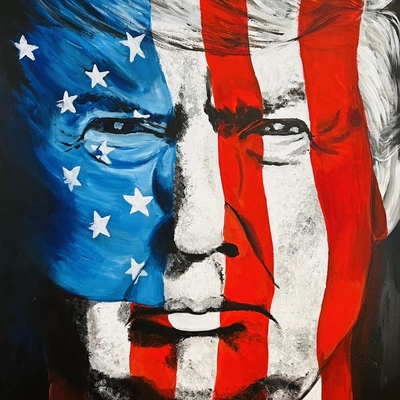Stay informed on the latest Truth Social posts from Donald Trump (@realDonaldTrump) without the doomscrolling. Consider it a public service for your mental health. (Why?)
- The Trump administration's strategy for trade deals involves an initial period of higher tariffs (30% on China, 10% on others) followed by a 12-month window for countries to lower non-tariff barriers and open their economies.
- Extending the deadline and establishing permanently higher tariffs would be positive for business planning, employment, and financial markets.
- This approach is expected to generate $400 billion in annual revenue for US taxpayers.
- Trade partners will be satisfied with a 10% tariff rate.
- The administration's trade strategy has potentially outsmarted all critics and opponents.
- Prolonged elevated uncertainty carries greater downside risk for the economy, as depicted in the provided chart showing real GDP response to policy uncertainty shocks.
The post details a trade policy expected to yield $400 billion in annual revenue for US taxpayers and result in positive outcomes for business planning, employment, and financial markets. These factors directly influence corporate profitability and investor sentiment, leading to a significant potential impact on the S&P 500. The included chart also illustrates the impact of economic policy uncertainty on real GDP, underscoring the policy's market relevance.
The post focuses on economic strategy and trade policy, not on military threats, ultimatums, or any direct indications of international conflict escalation.
- Commodities: Gold (XAU) may see increased demand as a hedge against trade volatility if the tariff strategy creates global economic friction or strengthens the USD. Oil (WTI) prices could react to global growth forecasts influenced by trade outcomes. Industrial metals like Copper may face demand fluctuations depending on the impact on global manufacturing.
- Currencies (Forex): The US Dollar Index (DXY) would likely strengthen if the policy leads to $400 billion in revenue and a stronger US economy. Trade war implications could cause volatility in pairs like USDCNH and EURUSD, as trade partners react to new tariff structures.
- Global Equities: US equities (S&P 500, Nasdaq) would likely see gains due to anticipated revenue, improved business conditions, and financial market stability. Non-US equities (STOXX 600, Nikkei 225, Hang Seng) could experience volatility based on their trade relationships with the US and the global economic impact of the tariff strategy.
- Fixed Income (Bonds): US 10Y and 2Y yields could rise if the policy leads to increased US government revenue and stronger economic growth, reducing safe-haven demand. Flight to safety into US Treasuries could occur if global trade uncertainty escalates. Credit spreads may tighten if the economic outlook improves.
- Volatility / Derivatives: The VIX could experience initial spikes due to uncertainty surrounding the implementation and global response to the tariff strategy, but may compress if the policy is perceived as stabilizing and beneficial for the US economy.
- Crypto / Digital Assets: Bitcoin (BTC) could react as a risk-on asset, potentially benefiting from an improving US economic outlook or increased liquidity. Correlation with tech stocks and broader macro liquidity trends would be key.
- Cross-Asset Correlations and Systemic Risk: Market participants would watch for shifts in traditional correlations, particularly between equities and bonds, as trade policy re-shapes global risk perceptions. Potential for market stress could emerge if trade partners retaliate, leading to liquidity concerns or margin calls.
- Retail Sentiment / Market Psychology: The narrative of 'outsmarting everyone' could foster strong retail sentiment, particularly within the US, potentially encouraging investments in sectors perceived to benefit from the trade policy. Social media discussions could amplify specific market moves based on perceived 'winners' and 'losers' from the tariff strategy.

